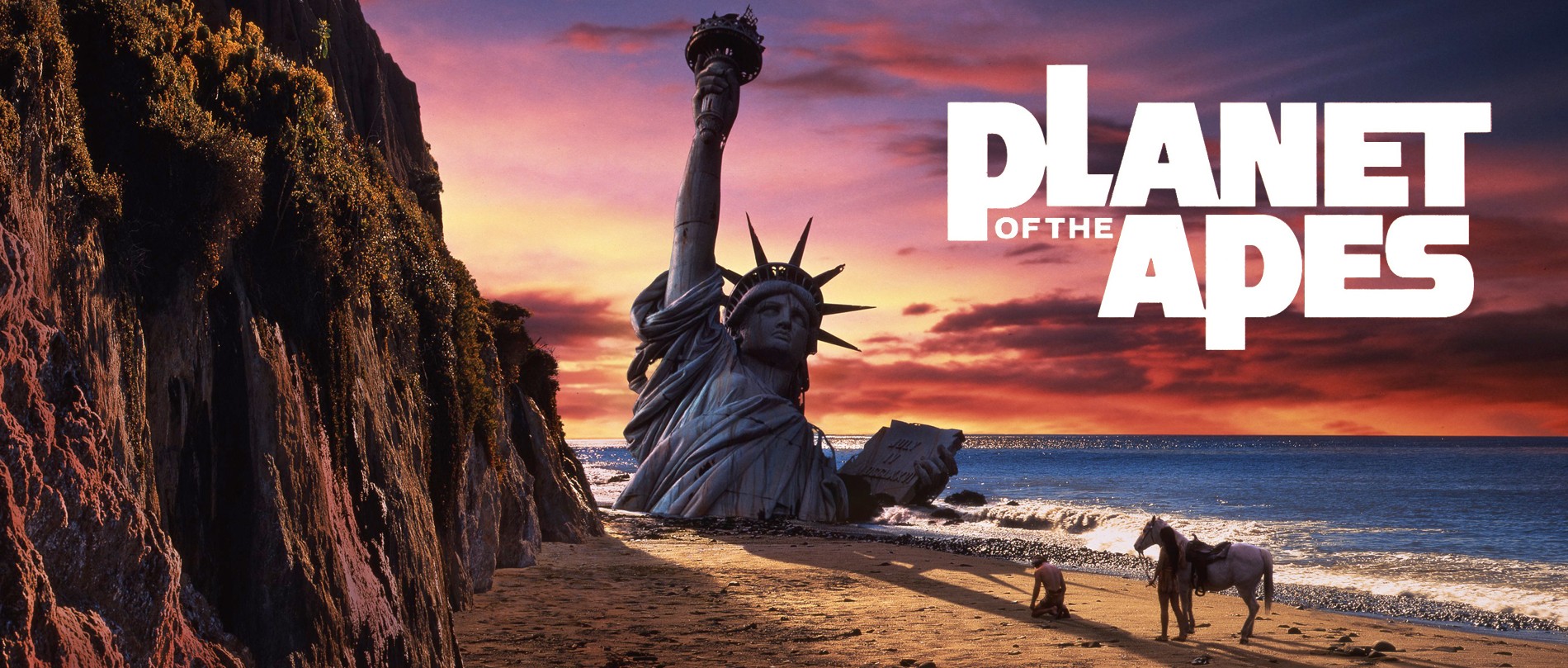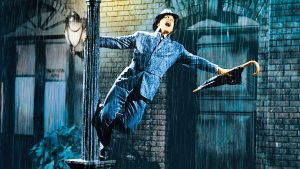Many films display the danger and threat of nuclear annihilation, yet few present it with such style as 1968’s Planet of the Apes. With the recent release of Rise of the Planet of the Apes and Dawn of the Planet of the Apes, Halftime decided to take a trip to the past and rewatch the film that started it all. The film stars Charlton Heston, who crash lands on a strange, remote planet and is immediately captured by intelligent, speaking apes. Although parts of the film seem a little cheesy when viewed today, Planet still boasts some fabulous performances, excellent writing, and an iconic twist ending.
The film’s effects have not aged particularly well, although there is a certain charm to the ape makeup. Roddy McDowell, who plays the ape Cornelius, turns in an excellent performance, even if his ape mask looks a little ridiculous. When compared with the incredible motion-capture CGI of the more recent films, one cannot help but marvel at how far visual effects have come since 1968. Heston brings star power to the lead role, and although he hams it up a bit, he still turns in an acceptable performance as the lead astronaut. He spends a significant portion of the film unable to speak due to a throat injury, but his voice’s return comes in the form of the film’s second most iconic scene. Heston’s character attempts to escape and is caught in a net, and he utters the famous line, “Get your stinking paws off me, you damn dirty ape,” catching the apes completely off guard. Heston’s growling voice is perfect for the intensity and shock of the line. Surprisingly enough, the script, from Michael Wilson and Twilight Zone veteran Rod Serling (based on a novel by Pierre Boulle), chooses to eschew violence for more dialogue-centric sequences. Sure, there are some action scenes sprinkled throughout, but it is the focus on character and mystery that helps the film succeed.
The vast majority of Planet of the Apes is an excellent film, with biting social commentary concerning mankind’s propensity for violence and innovative twists. However, the final minute of the film elevates it into celluloid legend. I won’t bother putting a spoiler warning, since the twist is actually revealed on the cover of the DVD release, but the reveal of the destroyed Statue of Liberty is certainly worth analyzing.
The scene works so well for a number of reasons. First, once the twist that the planet is actually Earth has been revealed, it seems like an obvious development. Hints have been dropped throughout the film, the most blatant of which is the fact that the planet is extremely Earth-like. Heston finds several artifacts from Earth in the cave, and the presence of feral humans point to the existence of humanity. Watching the film again makes the twist seem obvious, and yet it still is shocking.
Second, the editing of the scene is understated, yet extremely effective. We see Heston approach the statue with the camera positioned behind the statue, which makes it difficult for the viewer to see exactly what Heston is so shocked by. Then, we see Heston’s reaction. His acting may be a bit overwrought, but he is so devastated by what he sees that the viewer feels the same pain. After showing his anger and disgust over what he sees, the camera pulls back and finally reveals the destroyed Statue of Liberty. The shot lingers for an extended period of time before fading to black then credits. There is no music in the background. One cannot help but think that if the film were made today, there would be a huge, dramatic orchestral swell to signify the drama of what the viewer is witnessing on the screen. Instead, there is only the haunting sound of waves crashing against the beach; other than that, silence. The viewer hears and sees exactly what Heston’s character hears and sees, and this makes the scene all the more immersive and frighteningly plausible.
Planet of the Apes is easily one of the greatest science-fiction films of all time. It does everything a great science-fiction film should do: it questions social norms, it creates an exotic and unfamiliar world, and it pulls the rug out from under the viewer at the last possible moment. This makes it a film well worth revisiting, even if its sequels (and subsequent Tim Burton remake) sully the franchise’s name. After the two recent, surprisingly good Planet of the Apes movies, science-fiction fans are thrilled to see where the franchise will go next. But there is a good chance that the original’s iconic ending on the beach will never be topped.





